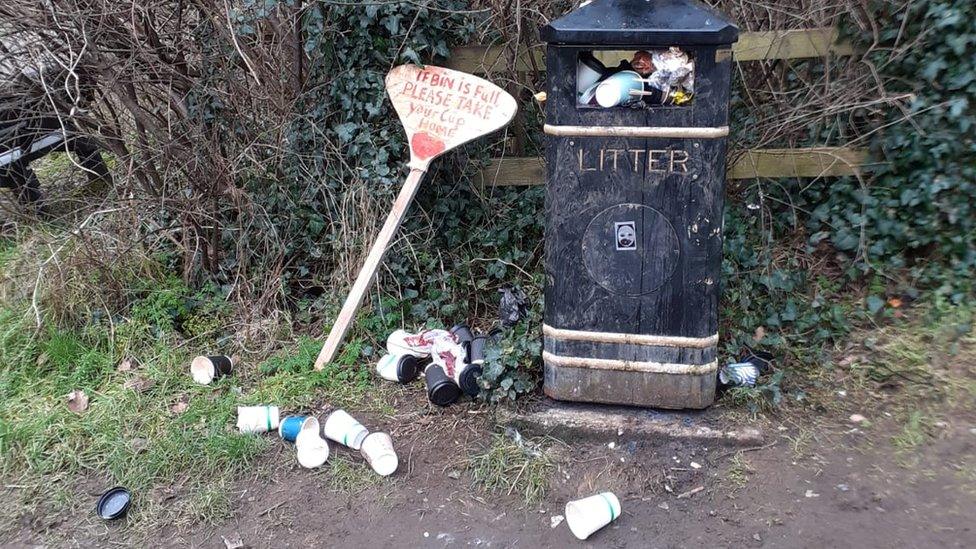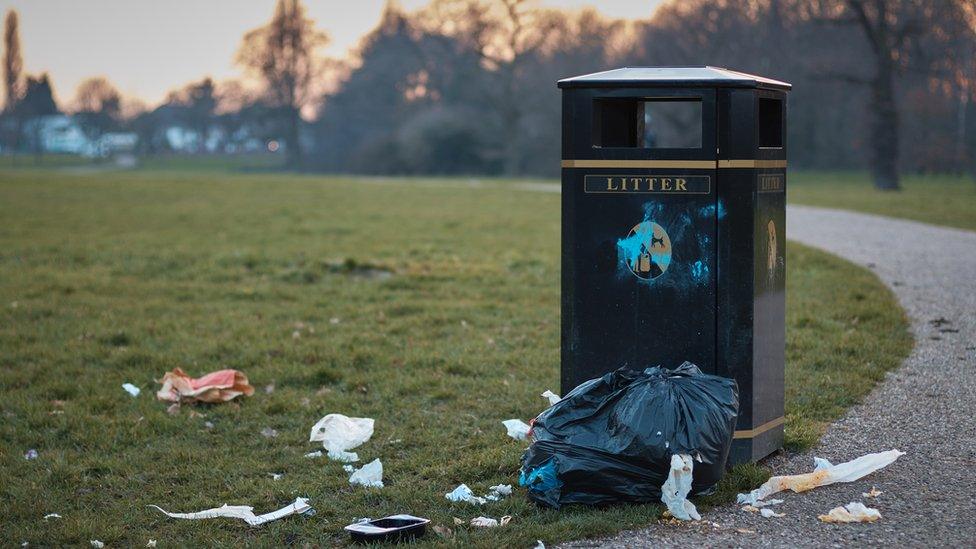Charity names companies behind NI litter problem
- Published

Empty cups strewn near a full bin on the Lagan towpath
An anti-litter charity has named companies whose products are most often found lying on the streets and rural roads of Northern Ireland.
They are mainly big firms like Coca Cola, McDonalds and manufacturers of other popular brands of sweets and fizzy drinks.
Products made by Coca Cola turned up 80,000 times in a litter survey.
Other regulars were the energy drink Boost, Lucozade, chewing gum and Mars and Cadbury's chocolate.
The report builds on a survey done last year by Keep Northern Ireland Beautiful and this year names the firms whose products were most regularly littered.
Chief Executive Ian Humphreys said new legislation should be used to put greater responsibility on producers to deal with litter.
"They must contribute fairly to both education and awareness raising campaigns and the huge street cleaning bill currently being met by ratepayers, whether or not they buy those products," he said.

The annual council clean-up bill is estimated at £29m.
In total, it is estimated that seven producers are responsible for just over half of the branded litter on the streets of Northern Ireland.
The report said if cigarette butts could be identified by brand, the major tobacco companies named would have been much higher up the list.
Plastic continues to be a big problem, accounting for almost half the rubbish dropped or binned.
More than 100,000 sweet papers and a similar number of plastic bottles were recorded.
Single use coffee cups from Barista Bar - which services convenience stores - McDonalds and Costa were also regularly discarded.
Westminster bill
The report estimates that at any one time there are 1.3m pieces of litter on the streets of Northern Ireland.
That equates to 28 tonnes of rubbish.
The annual council clean-up bill has been put at £29m.
The UK's Environment Bill would grant new powers making producers responsible for their packaging all the way through the supply chain, including dealing with it should it be discarded as litter.
It is currently making its way through parliament but has been delayed again and is not expected to become law before the Autumn.
Stormont will also have to give its consent for the bill to be extended to Northern Ireland.
- Published27 February 2020
